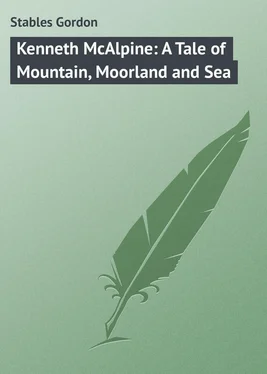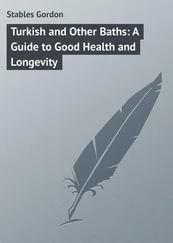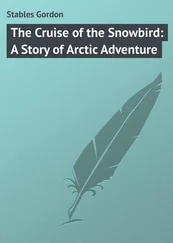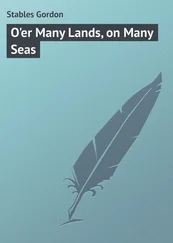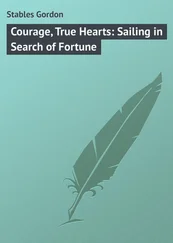Gordon Stables - Kenneth McAlpine - A Tale of Mountain, Moorland and Sea
Здесь есть возможность читать онлайн «Gordon Stables - Kenneth McAlpine - A Tale of Mountain, Moorland and Sea» — ознакомительный отрывок электронной книги совершенно бесплатно, а после прочтения отрывка купить полную версию. В некоторых случаях можно слушать аудио, скачать через торрент в формате fb2 и присутствует краткое содержание. Жанр: foreign_prose, на английском языке. Описание произведения, (предисловие) а так же отзывы посетителей доступны на портале библиотеки ЛибКат.
- Название:Kenneth McAlpine: A Tale of Mountain, Moorland and Sea
- Автор:
- Жанр:
- Год:неизвестен
- ISBN:нет данных
- Рейтинг книги:4 / 5. Голосов: 1
-
Избранное:Добавить в избранное
- Отзывы:
-
Ваша оценка:
- 80
- 1
- 2
- 3
- 4
- 5
Kenneth McAlpine: A Tale of Mountain, Moorland and Sea: краткое содержание, описание и аннотация
Предлагаем к чтению аннотацию, описание, краткое содержание или предисловие (зависит от того, что написал сам автор книги «Kenneth McAlpine: A Tale of Mountain, Moorland and Sea»). Если вы не нашли необходимую информацию о книге — напишите в комментариях, мы постараемся отыскать её.
Kenneth McAlpine: A Tale of Mountain, Moorland and Sea — читать онлайн ознакомительный отрывок
Ниже представлен текст книги, разбитый по страницам. Система сохранения места последней прочитанной страницы, позволяет с удобством читать онлайн бесплатно книгу «Kenneth McAlpine: A Tale of Mountain, Moorland and Sea», без необходимости каждый раз заново искать на чём Вы остановились. Поставьте закладку, и сможете в любой момент перейти на страницу, на которой закончили чтение.
Интервал:
Закладка:
“What mean ye, Dugald?” Kenneth said.
“Mean?” cried Dugald almost fiercely. “Why, this, lad: that news came to-day to the clachan that our auld laird, that has ever been sae kind to us, is bankrupt, and has sold his fine estate to an American – to a foreigner, Kennie.”
“Don’t say so?”
“But I do say so, and I fear it’s an owertrue tale, lad. The place that knows us noo may soon know us no more. For they tell me he is going to evict the tenants, pull the clachan down, and turn our bonnie glen into a forest for deer, knock doon the dear auld kirk, Kennie, that you and I were christened in, and have sung psalms in Sunday after Sunday, knock doon our kirk, give our roofs to the flames, – ay, Kennie, and level the graves o’ those we hold dear!”
“I really cannot believe all this, Dugald. Oh! it would kill my mother.”
“Poor laddie!” said Dugald, laying his hand kindly on Kenneth’s shoulder. “Poor laddie! Grief has been your share in the world of late. Two or three years ago, when your father lived, what a merry boy you were! But your father, once a thrifty crofter, had been reduced to a humble shepherd, and when that broke his heart, and the Lord took him, his brave boy Kennie left school and tended the sheep, and his industry supports a widowed mother. Ay, lad, Kennie, it will gang hard on you and hard on your mother to leave Glen Alva.”
Kenneth looked the picture of despair. His flute had fallen from his hand, and lay unheeded among the brackens.
“To leave my mother,” he muttered, speaking apparently to himself, “to go into a foreign land, that were bad, but to know that the very glen itself was altered, the old kirk roofless, the houses heaps of ruins, to have nothing to look back to, nothing at home to love – oh! Duncan, Duncan, that wouldn’t be absence from home; it would be banishment, Duncan, banishment and exile.”
“Let us try no’ to think about it, Kennie. Dinna look so woe-begone, man, or you’ll mak’ me sorry that I’ve told you.”
The boy turned quickly round.
“Oh! but say you’ve been but joking. Say it is not true, Duncan.”
“Oh hey!” was Duncan’s answer – a big sigh, that was all.
“But you know,” said Duncan, after a pause, “nobody is sure yet of anything.”
The boy laughed now.
“Ha! ha! yes,” he cried, tearing himself away from gloomy thoughts. “We’ll have hope. We won’t think about it, will we? Ha! ha! no, we won’t think about it. And I’ll never say a single word to my mother about the matter. It may pass, you know.
“And so,” he continued, “you really like my cave. Well, little Archie, your son, will often be here with me. And you must come too, and we’ll have such fun. I wonder if the ptarmigans will build next year in the same place as they did last. Mind when the snow falls you’ll take me for a day’s white hare hunting, won’t you? It is such grand sport, and you promised, you know. What tune did you say I was to play? Something merry. Oh! yes, I know – ”
Kenneth recovered his flute from among the brackens as he spoke, and rattled off into as merry a reel as ever witches danced to in “Alloway’s auld haunted kirk.”
“First-rate!” cried Duncan, clapping his hands, while even Kooran barked for joy, and Shot’s voice gave gladsome echo at the cave’s mouth. “First-rate! man; that’s the kind o’ music to banish the bogies. Losh! Kennie, music like that would have made Methuselah himsel’ grow young again. That it would.”
It was late that evening ere the two friends found themselves down the glen again, but when they bade each other good-night and walked briskly homewards there was not a thought in their hearts of evil to come; they were each as happy as the lark that carols o’er spring corn.
Chapter Five
A Day in the Wilds
“My heather land, my heather land,
Though fairer lands there be,
Thy gowany braes in early days
Were gowden ways to me.”
Scene: The fairy’s glen high up among the mountains. Kenneth seated, book in hand, on the top of the fairy knoll, which stands out strangely green against the purples and browns which surround it. Kenneth is alone. Kooran is away down beneath, minding the sheep. The shepherd-boy lays down the book at last, or rather he drops it down the chimney of his cave, and it falls on the carpet of brackens beneath. Then he takes his crook, and goes slowly down the strath.
This was a Saturday forenoon, and Kenneth and his little friend Archie McCrane were going on a long round of pleasure.
Ha! yonder comes Archie. Or rather, yonder suddenly doth he appear. He comes straight up out of the centre of a bush of furze, in quite a startling kind of way.
Archie is eleven years of age, though very tiny, but very strong, and as hard as an Arab. No fat about Archie. His face and bare neck and breast and thorn-scratched knees are as red as if recently rubbed with brick-dust. There isn’t a rent or hole in either his jacket or kilt, but woe is me, it is pretty nearly all patches; it is mother’s work every night to mend the rents Archie makes in his clothes. Archie is, of course, his mother’s darling. She even takes pains to make him pretty. She prides herself even in his beautiful hair. His hair is one of Archie’s strong points. Mind, he wears no bonnet (cap), never did and never would. He owns one, but always forgets to put it on. So his soft golden hair is cut across above the brows, and hangs in wavy luxuriance over his shoulders. I said golden, but it is more straw colour, and bleached on the top almost white.
He is a singular lad, Archie, has a half-wild, half-frightened look in his face; in fact, take him all in all, he is quite in keeping with the romantic surroundings.
“I’ve got him,” Archie said.
“What is it?”
“A little black rabbit.”
“Strange,” said Kenneth; “put him down. He must be half tame, I should think.”
Archie put it down, and the two boys knelt beside it among the heather. It was a half-grown one, so mild, so gentle-looking. Butter, you would have said, wouldn’t melt in that wee rabbit’s mouth. And it crouched down low and held its ears flat against its back, and never moved an eye or winked, but allowed the lads to smooth it with their fore-fingers.
But all at once, pop! it was off like an eel.
“Oh?” said Archie, with such a disappointed look, “and I meant to take it hame wi’ me.”
Kenneth laughed, and off the two scampered, as wild as any rabbits.
“Shot is here,” said Archie.
“Where?”
“Down with Kooran.”
“Then you must whistle him up; Kooran will look after the sheep by himself, but Shot will lead him into temptation. Besides, the sheep don’t know Shot. Whistle, Archie, whistle, man.”
Archie put four fingers in his mouth and emitted a scream as shrill as the scream of the great whaup. (The curlew.) In a moment more Shot was coming tearing along through the heather.
And with him was Kooran.
“What do you want, Kooran?”
Kooran threw himself in a pleading attitude at his master’s feet, looked up with brown, melting, pleading eyes, and wagged his tail.
“Oh! I know, dear doggie,” said Kenneth; “you want your dinner, because you know we’ll be away all day.”
Kooran jumped and capered and danced and barked, and Kenneth rolled a piece of cake and a bit of cheese in a morsel of paper and handed it to the dog.
“Keep the koorichan,” (sheep) “well together, doggie,” he said; “and don’t take your dinner for an hour yet.”
Kooran gave his tail a few farewell wags and galloped off, but as soon as he was in sight of the flock and out of sight of his master, he lay down and ate his dinner right up at once. He ate the cheese first, because it smelt so nice, and then he ate the cake.
Читать дальшеИнтервал:
Закладка:
Похожие книги на «Kenneth McAlpine: A Tale of Mountain, Moorland and Sea»
Представляем Вашему вниманию похожие книги на «Kenneth McAlpine: A Tale of Mountain, Moorland and Sea» списком для выбора. Мы отобрали схожую по названию и смыслу литературу в надежде предоставить читателям больше вариантов отыскать новые, интересные, ещё непрочитанные произведения.
Обсуждение, отзывы о книге «Kenneth McAlpine: A Tale of Mountain, Moorland and Sea» и просто собственные мнения читателей. Оставьте ваши комментарии, напишите, что Вы думаете о произведении, его смысле или главных героях. Укажите что конкретно понравилось, а что нет, и почему Вы так считаете.
